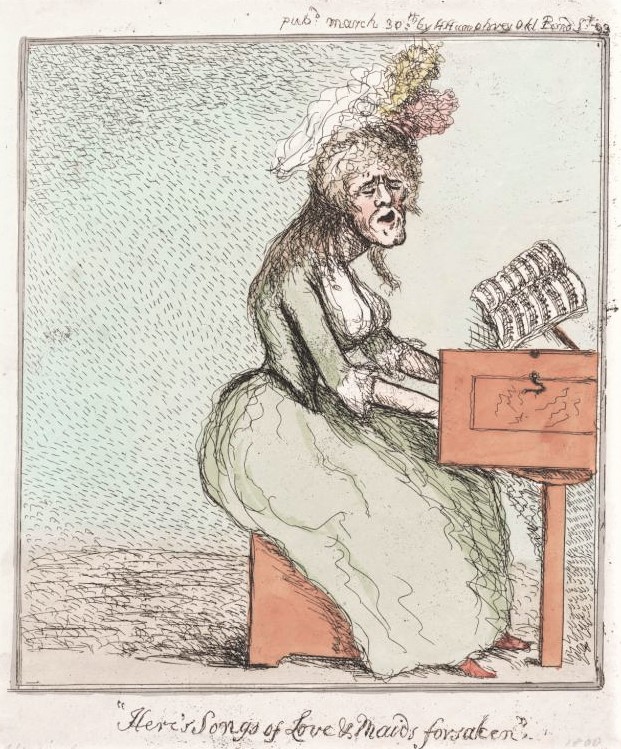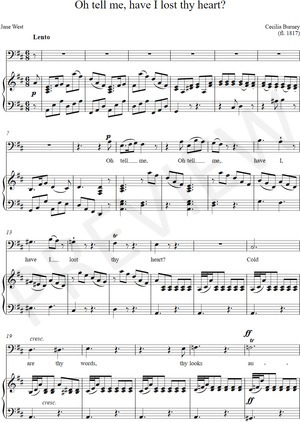 notAmos Performing Editions 1 Lansdown Place East, Bath BA1 5ET, UK +44 (0) 1225 316145 Performing editions of pre‑classical music with full preview/playback and instant download |
Printable cover page (PDF), €0.00 for unlimited copies Download this item
If you have any problem obtaining a PDF, please see our help page. If that does not resolve the issue, please click here.
Click on the illustration to display a larger version
For licensing/copyright information please click here
"Lady Avondel's song, The words taken from The Refusal by Mrs West. Composed and respectfully inscrib'd to Mrs Holroyd by Miss Cecilia Burney. London."
Upon its publication in 1817, this piece was reviewed by the New Monthly Magazine and Universal Register in the following terms: "This pathetic ballad, when emanating from a deep-toned voice, expresses in few notes the sorrows of a mind worn down with grief. The broken sentences interspersed with symphonies have a powerful effect on the feelings; and shew the fair authoress to have a perfect mastery of the human mind." No biographical details of "the fair authoress" have been uncovered. Perhaps the name is a nom de plume, consisting as it does of the surname of a prominent authoress (Fanny Burney) and a Christian name from the title of her second most successful novel (Cecilia: that novel from which another "fair authoress" gleaned the phrase "pride and prejudice").
Upon its publication in 1817, this piece was reviewed by the New Monthly Magazine and Universal Register in the following terms: "This pathetic ballad, when emanating from a deep-toned voice, expresses in few notes the sorrows of a mind worn down with grief. The broken sentences interspersed with symphonies have a powerful effect on the feelings; and shew the fair authoress to have a perfect mastery of the human mind." No biographical details of "the fair authoress" have been uncovered. Perhaps the name is a nom de plume, consisting as it does of the surname of a prominent authoress (Fanny Burney) and a Christian name from the title of her second most successful novel (Cecilia: that novel from which another "fair authoress" gleaned the phrase "pride and prejudice").
Lyrics: Jane West
O tell me, have I lost thy heart?
Cold are thy looks, thy words austere.
Fear not the secret to impart;
No loud complaints shall reach thine ear.
Unseen by thee my tears shall flow,
Till sorrow wastes my youthful bloom:
Life will not always strive with woe,
And grief is silent in the tomb.
O tell me, have I lost thy heart?
Cold are thy looks, thy words austere.
Fear not the secret to impart;
No loud complaints shall reach thine ear.
Unseen by thee my tears shall flow,
Till sorrow wastes my youthful bloom:
Life will not always strive with woe,
And grief is silent in the tomb.

